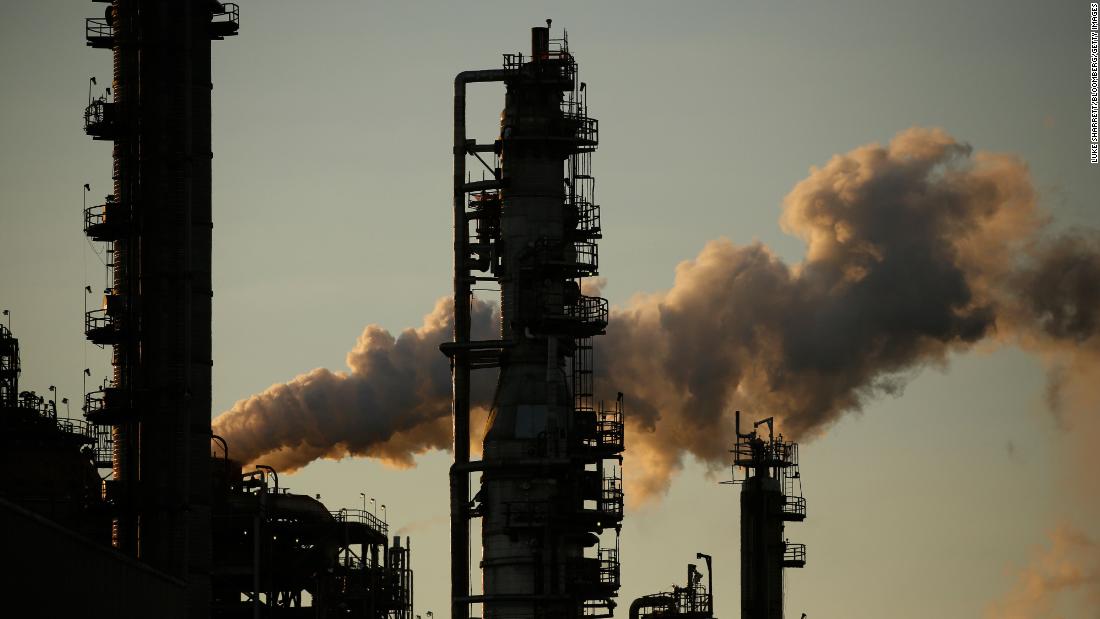
"We are facing a devastating pandemic, new heights of global heating, new lows of ecological degradation and new setbacks in our work towards global goals for more equitable, inclusive and sustainable development," António Guterres told an empty auditorium -- a Covid-19 precaution -- at Columbia University. "To put it simply, the state of the planet is broken ... Humanity is waging a war on nature."
He added: "This is suicidal."
It's a message no one wants to hear -- really ever, much less at the end of a year so full of brokenness. Yet it is a message that the world, still addicted to fossil fuels, desperately needs to heed. 2021 will be a pivotal moment for the future of humanity and one when a commitment to reaching for hope in the face of its opposite will be crucial to unbreaking the planet.
Five years have passed since world leaders agreed on the terms of the Paris Agreement, which, in essence, calls for net-zero greenhouse gas emissions by mid-century. Net zero carbon would mean that humans wouldn't be putting any more heat-trapping gases into the atmosphere than are being taken out by forests and other carbon sinks. In other words: putting the atmosphere back in balance, rather than our current strategy of stuffing it with pollutants year after year.
Optimism about the world's ability to make that change was at a high in Paris in 2015. After years of doubt -- with nationalist and climate-denying administrations elected in the United States, Brazil and elsewhere — we're nearing another inflection point of hope, in no small part because America's climate-denier in chief has been voted out of office.
Without real and lasting changes, however, these hopes will be dashed.
One cause for hope, strangely enough, is the pandemic. Much has been made of the emissions and air-pollution reductions associated with our cloistered lifestyles. People in Covid-hit parts of the world aren't commuting to offices, aren't flying in jets -- aren't, in short, doing some of the things that burn fossil fuels and contribute to the dangerous heating of the planet.
The Global Carbon Project, which tracks global CO2 pollution from fossil fuel industries, issued a report last week citing a "record" of an estimated 7% drop in annual fossil fuel emissions, to 34 billion tonnes -- 2.4 billion tonnes less than in 2019. The drop is attributable to Covid-19 restrictions, the report says.
That shift doesn't change the makeup of the atmosphere, but advocates have celebrated the drop as a potential turning point in the fight against global warming.
Another source of optimism: pledges.
Some countries are still ratcheting up their pledges to cut emissions, formally and informally. Among the standouts, according to the Climate Action Tracker, an independent research project: China aims to achieve carbon neutrality by 2060; and the Biden administration aims to pursue polices to achieve net-zero emissions by 2050. Nearly 130 countries adopted or are considering net-zero targets, according to that independent analysis. That represents well over half -- 63% -- of global emissions. And it puts the Paris Agreement target of limiting warming to 2 degrees Celsius within reach.
So that's the good news -- sort of.
What makes Guterres's doomsday analysis worth your attention is that these developments -- emissions reductions and carbon-neutrality pledges -- leave out much of the picture.
The problem with the emissions reductions, of course, is that the pandemic won't last forever -- thankfully so. A global health and economic crisis is no path toward sustainability. Real policy changes will be needed to curb emissions without curbing our lives.
To achieve climate global targets (thereby preventing the most catastrophic effects of global warming, even if we are seeing some scary, super-charged weather now) the world needs to keep cutting fossil fuel emissions by 6% per year, from now until 2030, according to the Production Gap Report, a collaboration of the Stockholm Environment Institute and others.
"Instead, governments are planning increases of 2% per year," the report finds.
That's increase. Not decrease.
Relatedly, the "net zero" carbon targets, while essential, risk masking a range of other climate policy sins. The way national governments are responding to Covid-19 is instructive. Governments could be using Covid-19 stimulus packages to boost clean energy industries. Instead, they're largely doing the opposite. G20 countries invested more than $240 billion toward fossil fuels as part of Covid-19 recovery -- and put only about $160 billion toward clean energy, according to a December 9 update from the Energy Policy Tracker, a project of several organizations, including Columbia University. The US is worse still, proportionally, investing $72 billion in fossil fuels; and only $27 billion in clean energy, the group said.
This is the time to push governments beyond assurances of climate neutrality. They must provide bold 2030 pollution reduction goals -- proof they're on track to get there. They must end fossil fuel subsidies. They must set dates for ending fossil fuel production, as officials from Costa Rica and Denmark have done and argued for, and as Pakistan did in announcing it won't build new coal projects. And they must stop using Covid-19 stimulus money as a way to entrench fossil fuel interests and their associated pollution.
This is not to disparage fossil fuel workers, who should benefit from subsidies, assistance and retraining programs. But national governments need to move away from carbon pollution as quickly as possible.
That would get humanity closer -- a bit -- to ending its "war on nature."
And it would be cause of genuine hope, which is something we all could use right now.
"Opinion" - Google News
December 18, 2020 at 02:08AM
https://ift.tt/3mpJBmR
The well-intentioned Paris climate promises don't go nearly far enough - CNN
"Opinion" - Google News
https://ift.tt/2FkSo6m
Shoes Man Tutorial
Pos News Update
Meme Update
Korean Entertainment News
Japan News Update
No comments:
Post a Comment